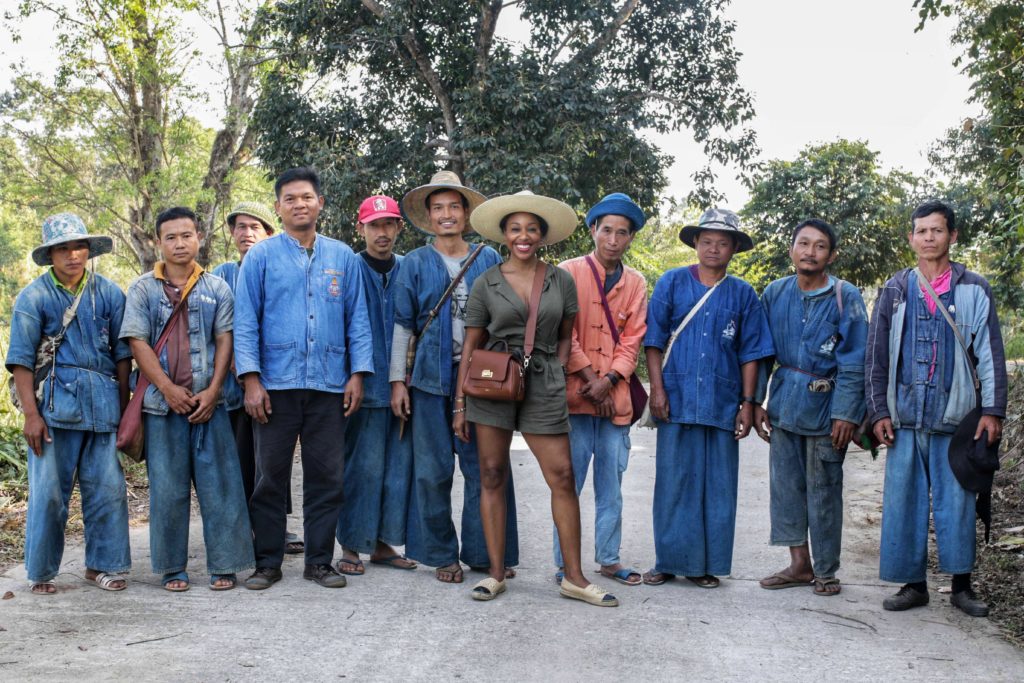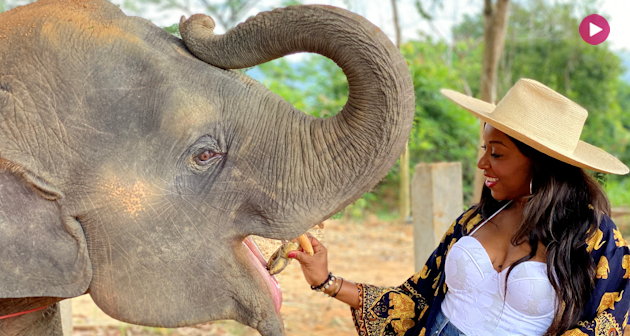
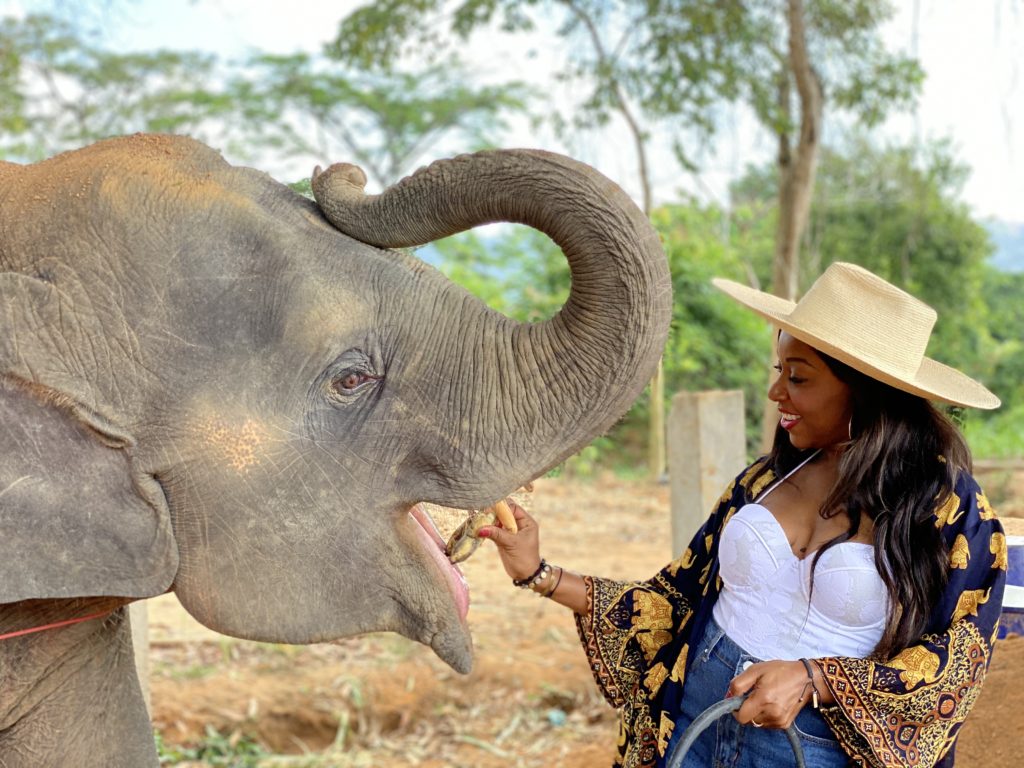
Located in Southeast Asia, Thailand boasts the world’s most postcard-perfect beaches, ornate temple hopping, street food, colorful hill tribes, elephant encounters and tropical islands. Escape your everyday routine and discover rich culture and amazing food in Bangkok, or get off the beaten track in the rural villages of Chiang Mai, then head south to bathe with elephants in Phuket.
Elephants are symbols in the Thailand way of life and can be seen on the National flag, street names, food names, and building names. Animal tourism however has a dark side, with increasing global concern for elephant welfare, in connection with the tourism industry. The Tourism Authority of Thailand’s is working hard to improve education and engagement about elephants across Thailand, and to collectivity move forward towards more sustainable solutions for elephant-based ethical tourism in Thailand and worldwide. Today, Thailand has laws governing animal welfare that apply to domesticated elephants.
When planning your travel itinerary, it’s important to be a socially responsible traveler and opt for elephant-friendly statuaries and camps. There are several in Thailand that offers responsible traveler-elephant interactions including Elephant World, Elephant Jungle Sanctuary, Phang Nga, Patara Elephant, Chang Chill and the Thai Elephant Conservation Center.
No matter what it is that tops your travel bucket list, Thailand a must-visit for any budding traveler and we’ve put together an epic travel guide, highlighting the best must-sees in Thailand for elephant lovers.
By Kinya Claiborne, STYLE & SOCIETY
Photo & Video Credit: Candy Krajangsri & Tourism Thailand

Located two hours from Bangkok, Kanchanaburi is an excellent tourist destination for nature lovers. A province in the Central Plains, Kanchanaburi is famous for its natural attractions such as forests, mountains, caves, waterfalls and Elephant World. While you’re there, also visit the Death Railway, a bridge over the River Khwae located in Tambon Tha Makham. It’s a site of significant historical importance because it was built during WWII under the supervision of the Japanese Army by Allied POWs and was part of the strategic railway linking Thailand with, then, Myanmar. The painstaking construction of the Bridge, brutalities of war, diseases and starvation claimed thousands of lives of the POWs.
Elephant World is a self-supporting Environmental Conservation Organization and sanctuary that cares for over 30 sick, old, disabled, abused and rescued elephants. As a visitor you will feed the elephants, cut or wash food for them (i.e. cut banana trees with the mahouts or wash cucumbers by the river), cook rice or medicine balls for the older ones, give them a mud bath then take them to the river to bathe.
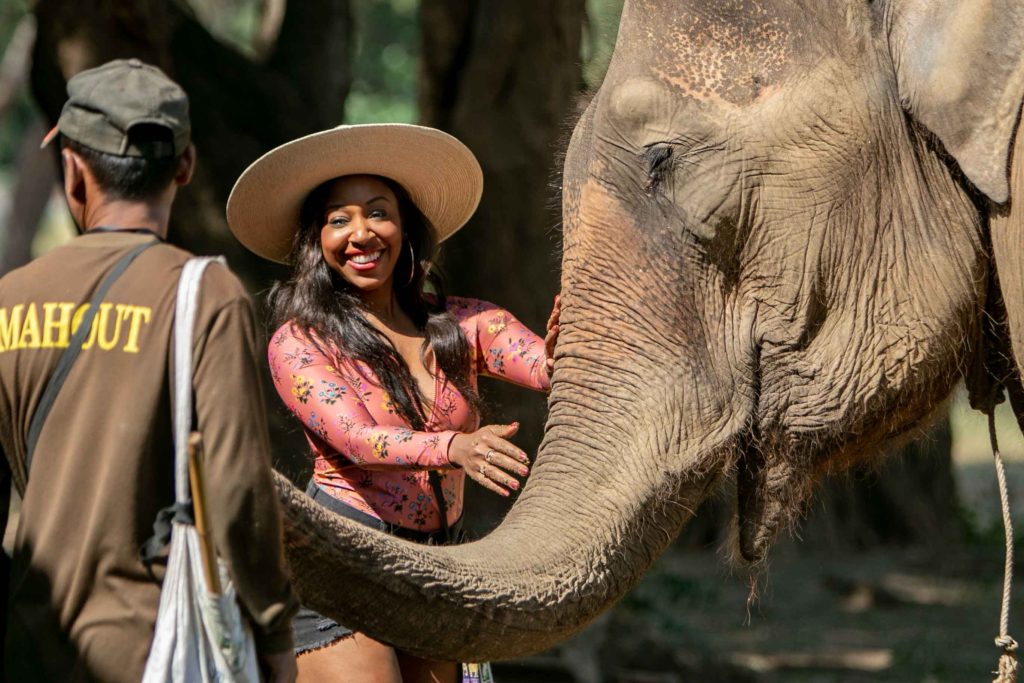
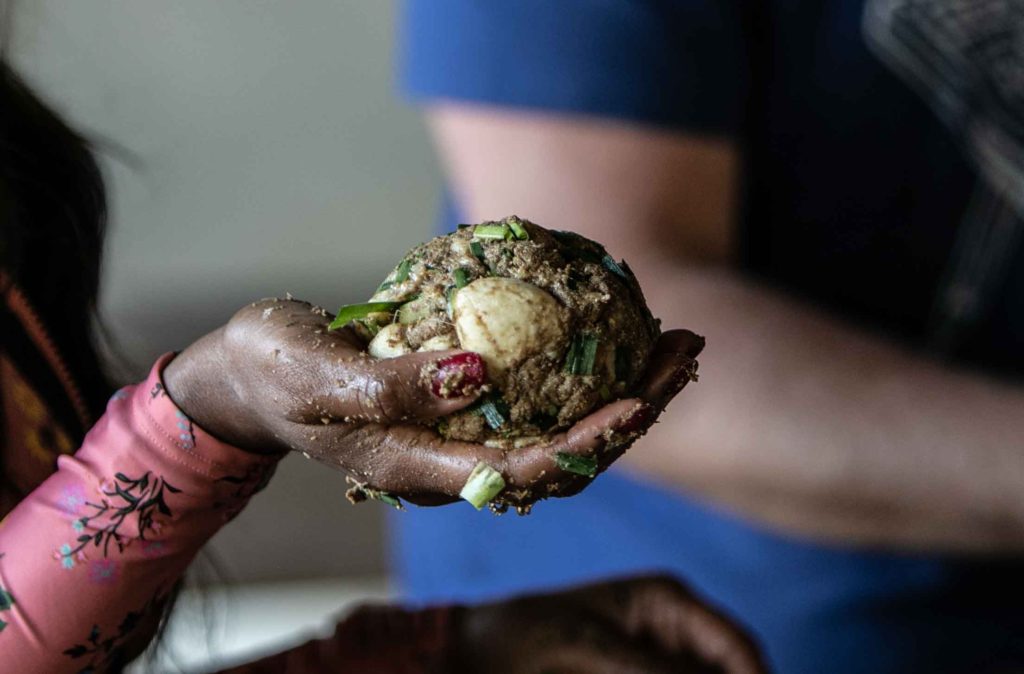
Phuket is the biggest island in Thailand and sits on the Andaman Sea. Located in Southern Thailand, the beauty of the white beaches, sparkling island-dotted seas, delightful turn-of-the-century Sino-Portuguese architecture, lush tropical landscape, and elephant sanctuaries combine to create a delightful ambience for a truly memorable experience.
The development of the old town is influenced by Dutch, Portugal, Italy, English, Arabia, Sri Lanka, China and Thai culture in the in the 19th century. In the old town, you will find historical Sino-Portuguese architecture buildings with Mediterranean character and Chinese culture combined in various aspects surrounding the area. The famous shop houses are located throughout the area.

JW Marriot Phuket Resort & Spa
JW Marriott Phuket Resort & Spa is one of the most luxurious resorts in Phuket. Beachfront rooms, suites and villas provide the perfect retreat. The 5-star, family-friendly resort is just steps from Mai Khao Beach and provides easy access to the islands of Phang Nga Bay, including ‘James Bond’ Island, Old Town Phuket and the Royal Phuket Marina. The resort includes eleven restaurants and bars, three pools, full-service Mandara Spa, on-site turtle shelter and fitness center.
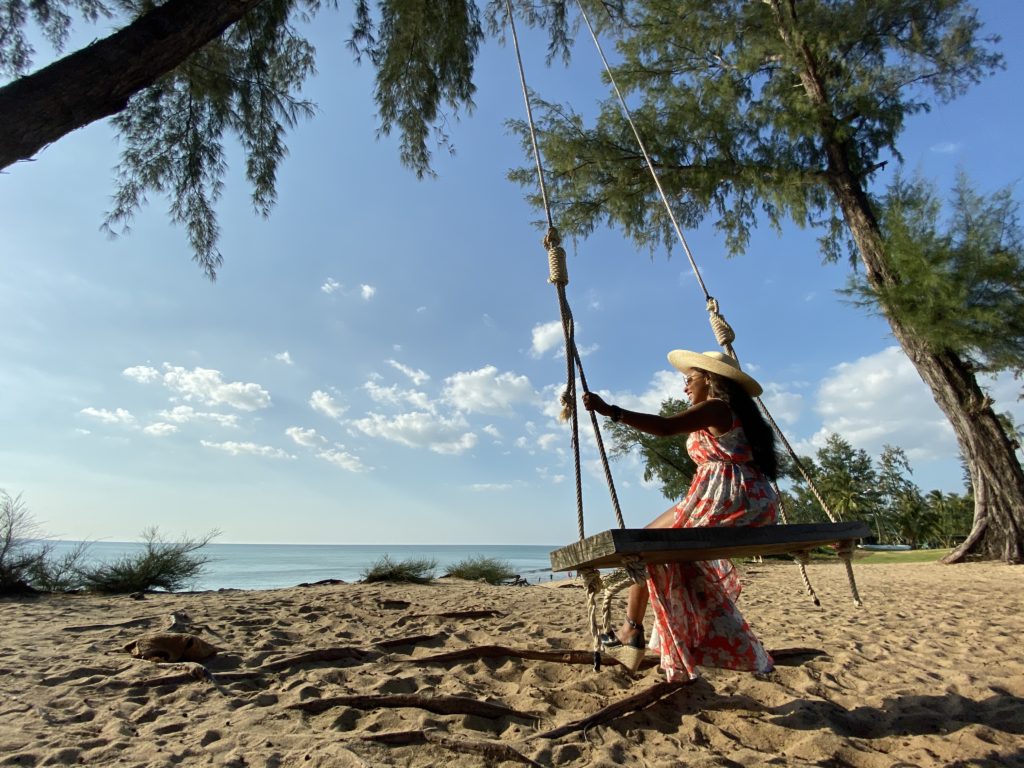
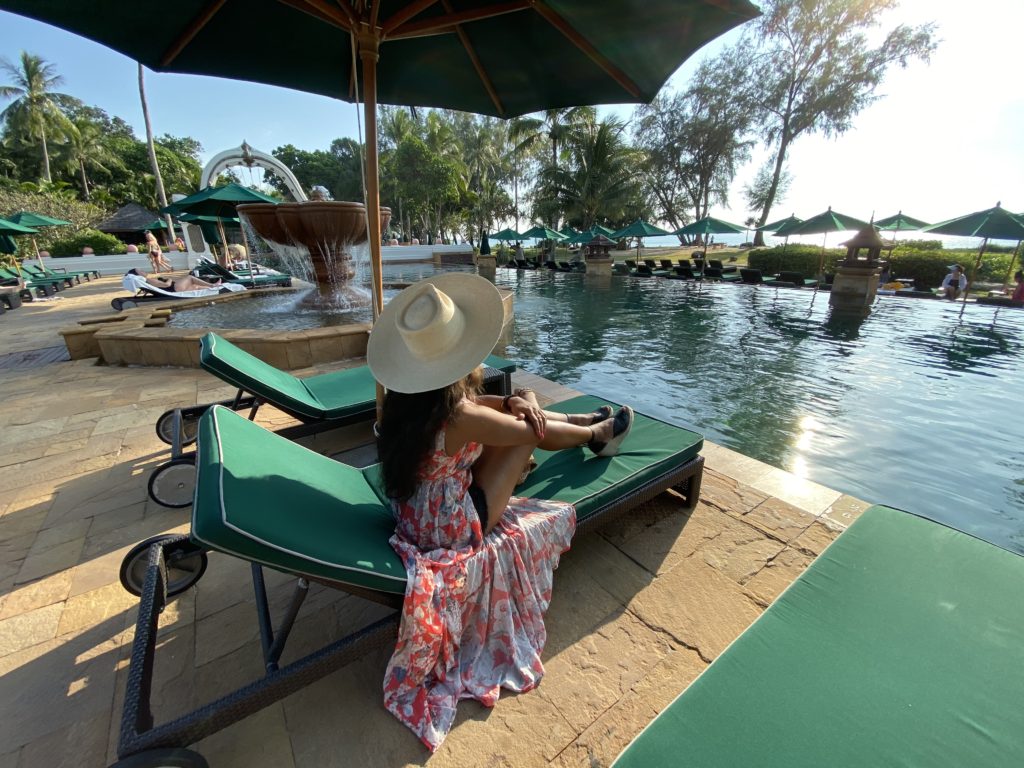
Elephant Jungle Sanctuary started as an eco-tourism project and has rescued over 100 elephants from riding, entertainment and logging throughout Thailand. Their mission is to provide as many elephants as possible with proper healthcare and a life of freedom. Elephant Jungle Sanctuary has a strict no riding policy and their elephants are also not subjected to training and performing. Visitors to the sanctuary will be able to feed, bathe and play with the animals on their visit.
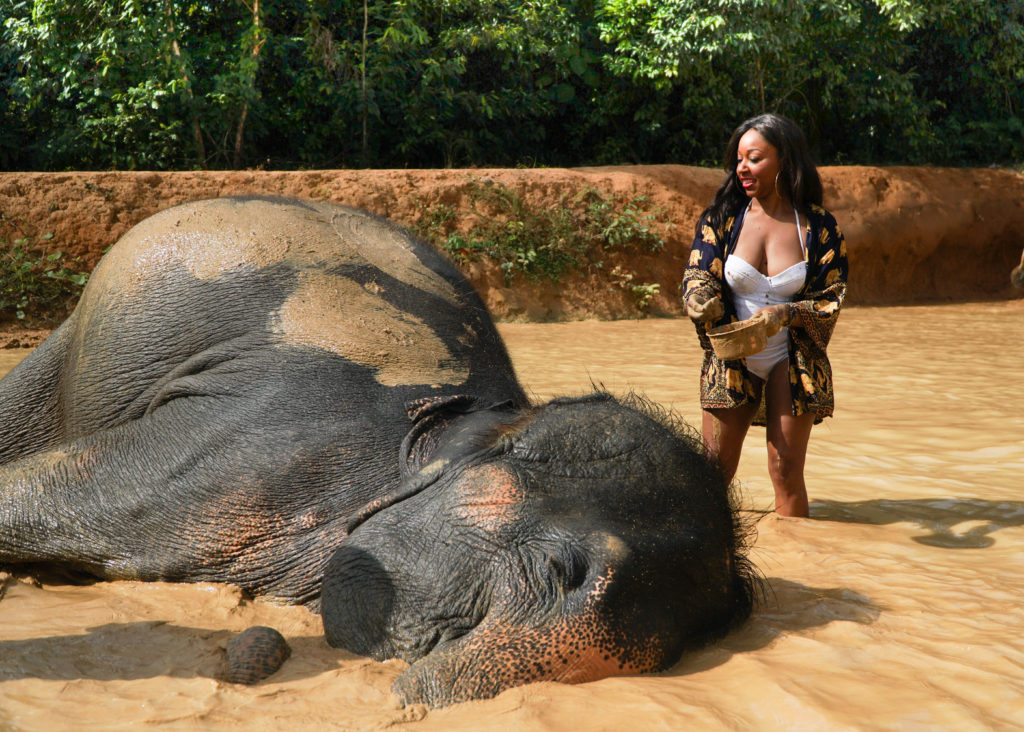
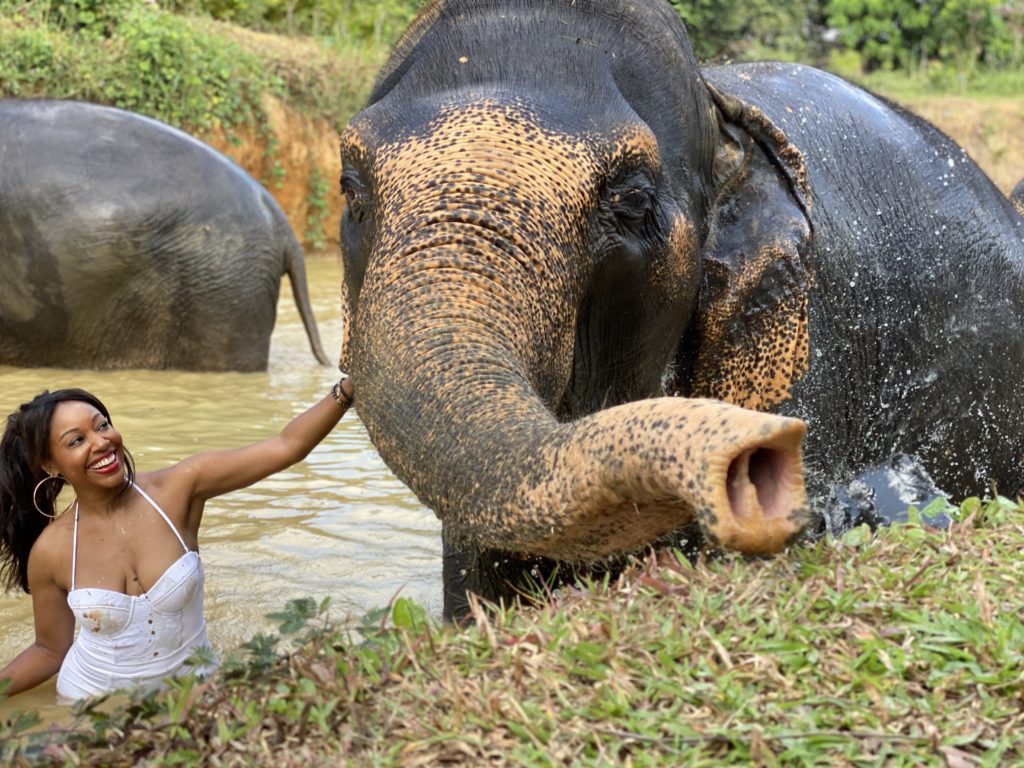
If you want to support a small, budding family business and ethical elephant practices, then you want to check out Phang Nga, a small luxury-style elephant park. It is adjacent to a nature reserve, which is located in a beautiful, wild fertile forest. Spend quality time with these elephants, see how they are cared for and join the interaction from feeding to bathing.
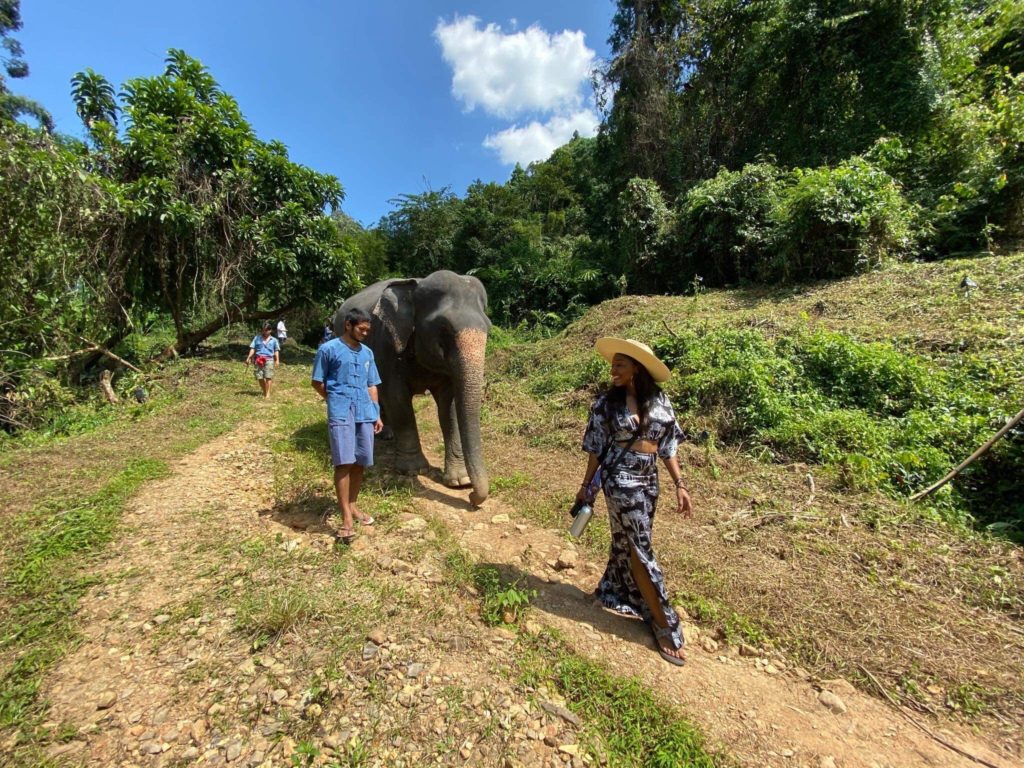
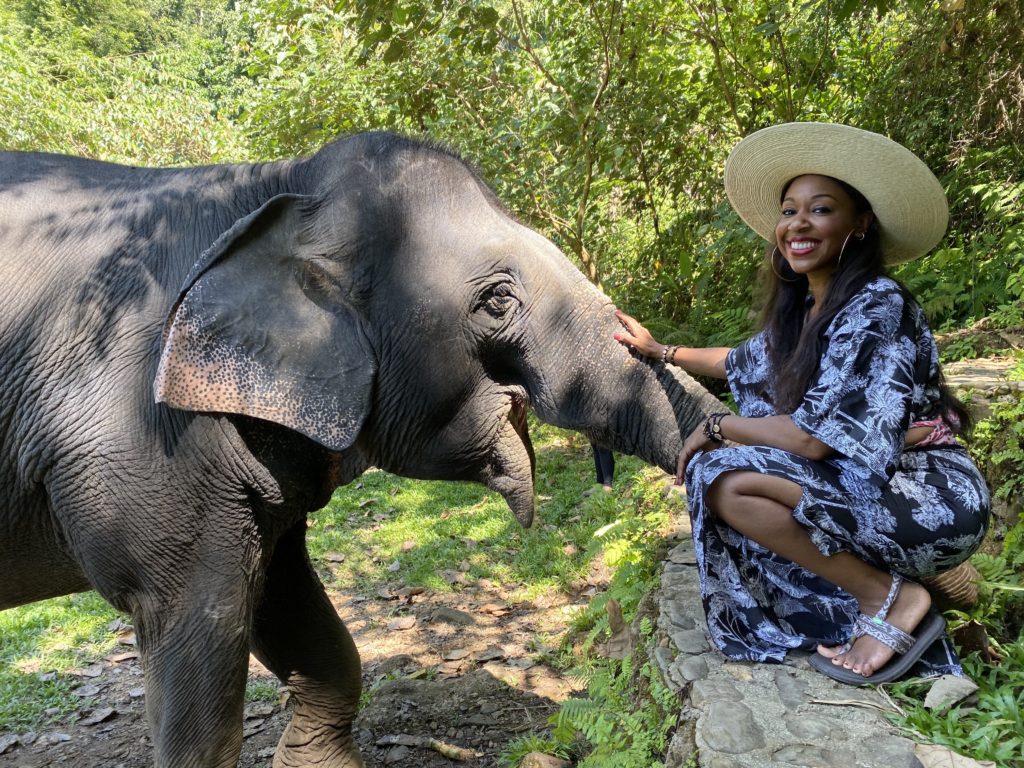
Known as a cultural hub in Northern Thailand, there are tons of things to see and do in Chiang Mai. It’s blessed with stunning natural beauty and unique indigenous cultural identity surrounded by high mountain ranges and jungles. Chiang Mai is also known for handmade goods, which you can find at the night markets including a variety of antiques, embroidery, indigo tie-dye, Thai silks, basketry, silverware, woodcarvings and more.
Giving alms to monks at dawn is an ancient Buddhist tradition that still lives on today. Tak bat means to present food to a monk or Buddhist teacher and is an important part of culture in Thailand. The ritual of giving alms to monks is a way for Thai people to give back to Buddhist monks, who in turn dedicate their lives to teaching others about being good and virtuous. The young monks, mainly 8-20 years old, walk through with brass bowls collecting Alms as Merits that range from money, to fruits, and many other goods. Giving of Alms happens anywhere between dawn and 8am when the Monks go back to either school or mediation. Alms giving is practiced all over the city, but courtyard around the 3 Kings Monument is the best place to give early morning Alms to the Monks in Central Chiang Mai.
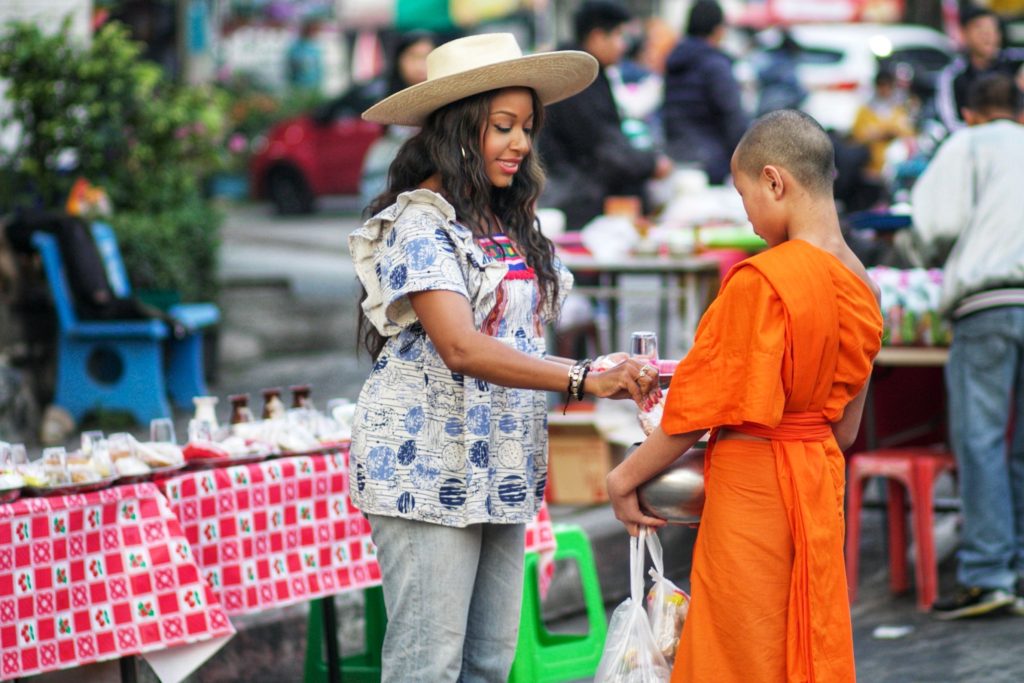
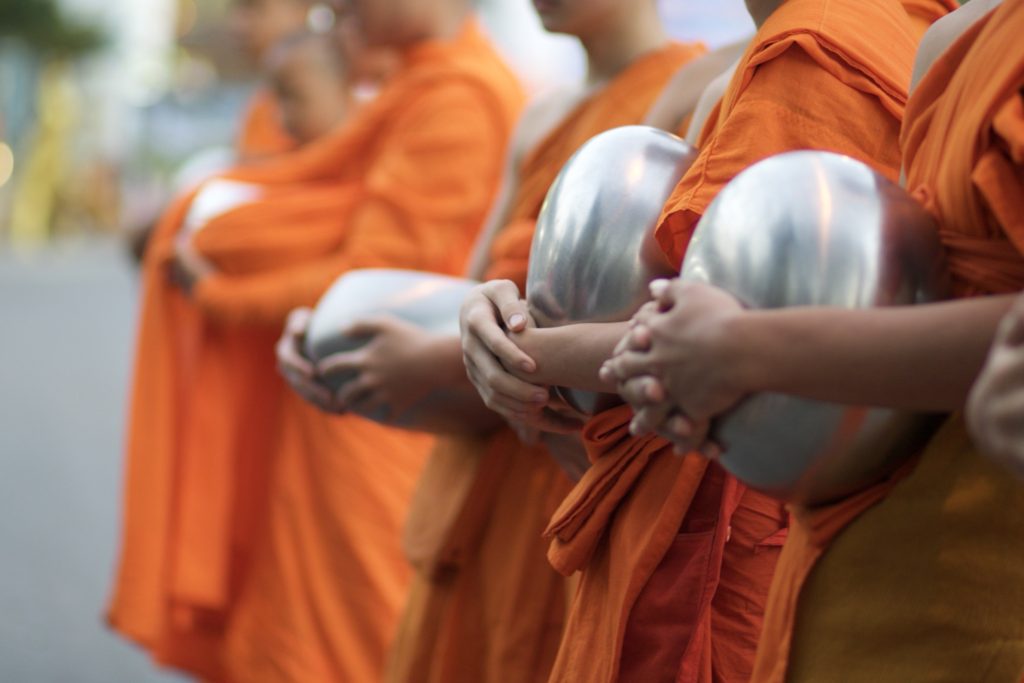
This elephant sanctuary offers visitors the chance to “Own an Elephant for a Day,” to get hands-on experience taking care of these majestic creatures. Visitors are trained how to approach an elephant, how to check their health, and how to communicate with the animals through spoken commands. Guests also get a chance to feed, bathe and bare-back ride the elephant.
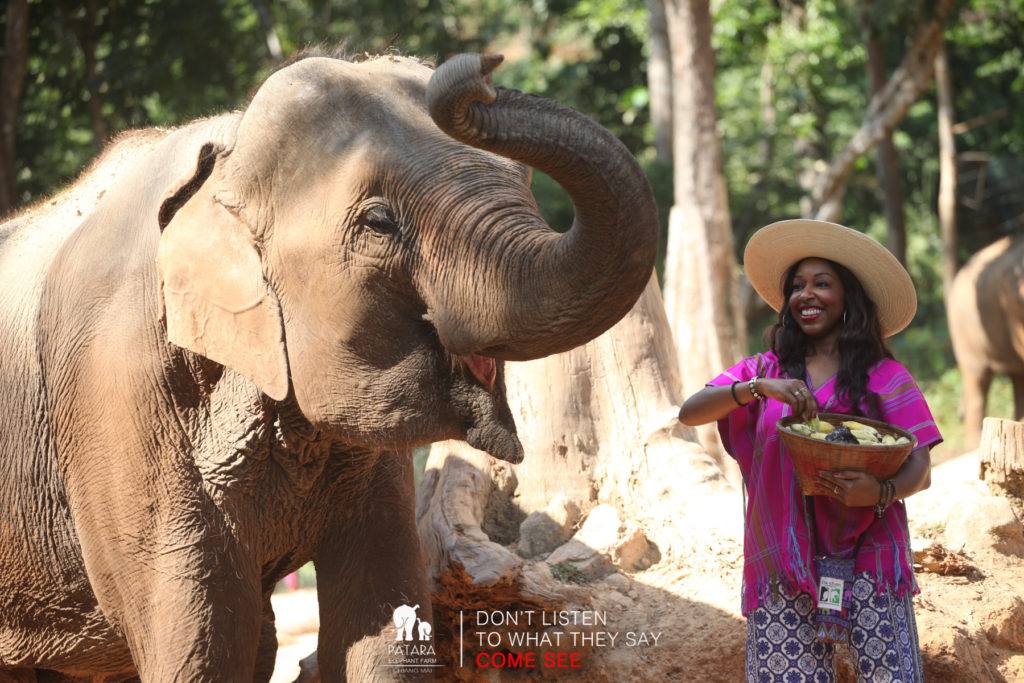
Chang Chill (meaning “relaxed elephants” in Thai) is an observation-only, no touch elephant-friendly camp where the six resident elephants graze, bathe, and socialize in the hills of Chiang Mai. The camp teaches visitors about the behavior and history of Asian Elephants, while they are being observed in their natural habitat. Visitors don’t miss out, because apart from watching elephants in a natural setting, they can spray wash them from the safety and comfort of an observation deck, feed elephants indirectly through a feeding tube system and meet the village tribe locals.
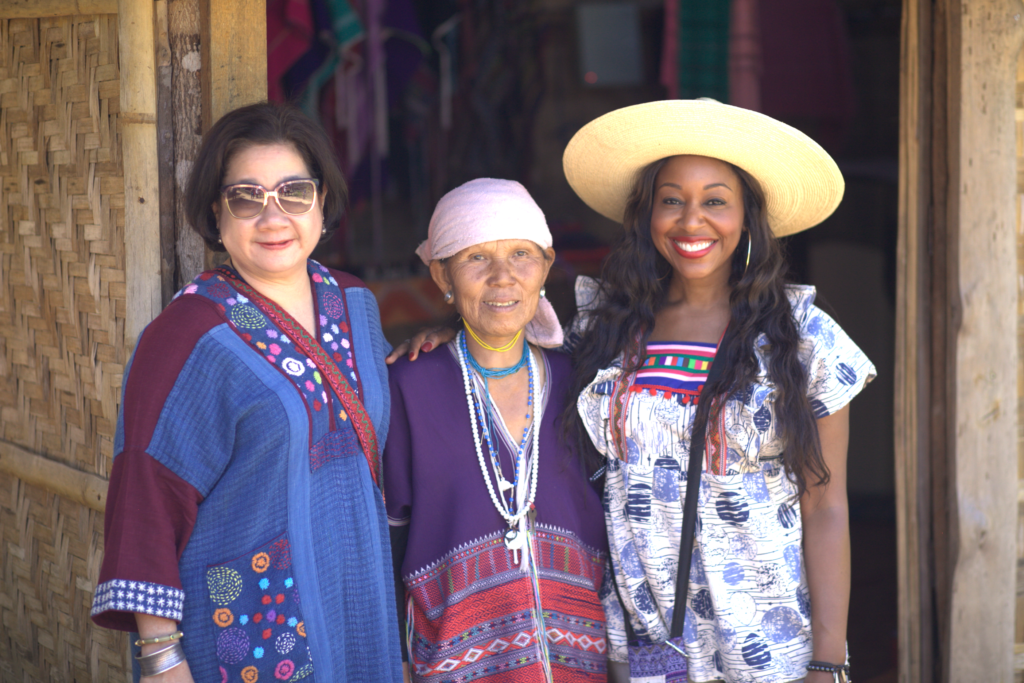
Thai Elephant Conservation Center
Thailand’s only state-owned elephant camp, the Thai Elephant Conservation Centre (TECC) was established in 1993 and currently cares for more than 50 Asian elephants including the King’s white elephants. Situated in the Lampang, just outside Chiang Mai, the 300-acre area forest facility gives visitors an opportunity to observe and learn about the elephants. The center also consists of a mahout training course and elephant hospital to conserve Thai elephants and protect them from extinction.
